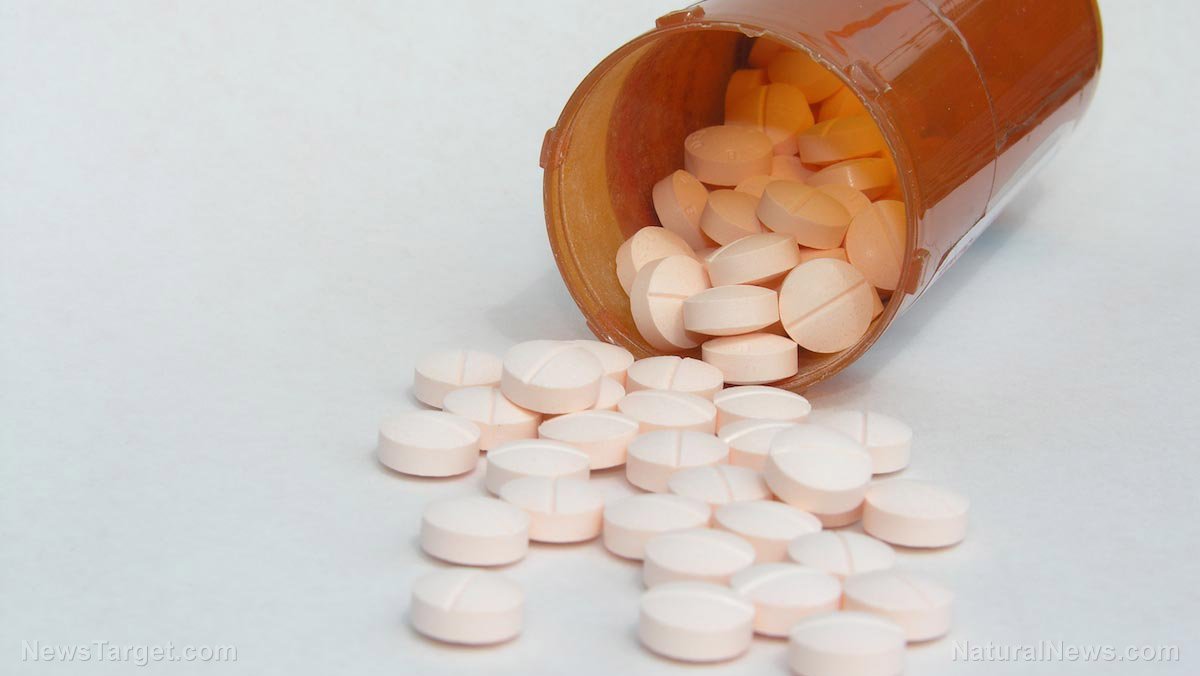
By Ronnie Cohen
A few days before extracting my teenager’s wisdom teeth, an oral surgeon wrote him a prescription for painkillers. My son filled it but never felt a need for anything stronger than ibuprofen. Three years later, I found an unopened bottle of Percocet — an opioid — in the back of a bathroom cabinet.
I had no idea a dentist had prescribed my then 19-year-old the highly addictive pills. Likewise, until recently, dentists seemed to have had no idea they may have been helping to feed an epidemic that resulted in a record 70,237 U.S. drug overdose deaths in 2017.
Today, with Americans more likely to die of an opioid overdose than a car accident, painkillers prescribed by dentists under circumstances similar to my son’s are starting to be recognized as a contributor to the public health crisis.
“It’s almost a rite of passage in the United States having your wisdom teeth out,” says Andrew Kolodny, who co-directs opioid treatment research at Brandeis University. “The aggressive prescribing of opioids to adolescents may be why we’re in an epidemic.”
Dentists routinely prescribe opioids to the millions of Americans, primarily teenagers and young adults, whose third molars they extract every year, according to a report published in JAMA last year. A 2011 article in the Journal of the American Dental Association observed that dentists prescribe 12 percent of painkilling opioids, just behind family doctors, who prescribe 15 percent. The authors also cited a 2004 ADA survey that found 85 percent of 563 oral surgeons wrote opioid prescriptions after removing wisdom teeth.
But anti-inflammatory analgesics, such as ibuprofen and acetaminophen, generally work better than opioids at easing acute dental pain, according to an April study in the Journal of the American Dental Association.
“Dentists and oral surgeons are the number one prescribers of opioids to teenagers. What’s so disturbing is that it’s so unnecessary. These are kids who could have gotten Advil and Tylenol,” Kolodny says.
Recent research suggests that opioids dispensed after wisdom teeth extractions could place teens and young adults at risk for addiction.
Nearly 6 percent of almost 15,000 people between ages 16 and 25 were diagnosed with opioid abuse within a year of receiving initial opioid prescriptions from dentists in 2015, a JAMA Internal Medicine analysis finds. In comparison, 0.4 percent in a similar group who didn’t get dental opioids were diagnosed with opioid abuse.
Last year’s JAMA report examined the insurance claims of almost 71,000 people ages 13 to 30 who had their wisdom teeth removed between 2009 and 2015. Those who filled opioid prescriptions were 2.7 times more likely than those who didn’t take home opioids to be filling opioid prescriptions long after any post-surgical pain should have subsided.
Other factors also predicted risk of long-term opioid use, the report finds. Teens and young adults with a history of chronic pain, anxiety or depression were most likely to progress to persistent use after filling their initial wisdom teeth-related prescriptions.
In general, however, patients like my son who followed their dentists’ directions and filled a single opioid prescription faced almost triple the risk of becoming addicted to painkillers.
The results alarmed Calista Harbaugh, lead author of the JAMA report and a University of Michigan at Ann Arbor surgery resident who studies narcotic prescribing in children. She believes dentists — the most frequent prescribers of opioids for people between ages 10 and 19 — could be playing an outsized role in the opioid epidemic.
“We know there is vast overprescribing of opioids,” Harbaugh says. “To turn around this epidemic, we all are going to have to play a role, and that includes dentists.”
Romesh Nalliah, a professor at the University of Michigan School of Dentistry and a co-author of the JAMA study, pleads “guilty” to having overprescribed opioids.
“Dentists are also business owners,” he says. “They don’t want patients to say, ‘Dr. Nalliah did my extraction, and now I’m in agony.’ ”
Yet Nalliah has quit prescribing opioids.
“I don’t want to be responsible for someone becoming addicted to opioids,” he says. “I personally think we can cut opioid prescribing in dentistry to less than half of what we do now.”
Dentists wrote 18.1 million opioid prescriptions in 2017, down from 18.5 million in 2012. “This is progress,” a December statement from the American Dental Association says, “and we know there is still more we can do.”
The association urged its 161,000 member dentists to use nonnarcotic pain relievers as first-line therapy and “to double down on their efforts to prevent opioids from harming patients and their families.”
In the past two years, P. Angela Rake has slashed by 70 percent the number of opioids she prescribes for her Minneapolis-area oral surgery patients. She used to routinely give opioids to patients whose wisdom teeth she removed. Now most of her patients leave without narcotic painkillers, and those who do get them, get fewer, she says.
Her motivation to curtail opioid prescribing is not only professional. It’s personal.
In 1999, Rake was finishing her training in oral surgery when her brother, then 26 and fresh out of law school, was diagnosed with testicular cancer. Though it was nearly 20 years ago, she vividly remembers talking to him on the phone soon after he had undergone painful cancer treatment.
“He was doing shockingly well. He said he was taking Percocet and asked me if he should keep taking his pain medication. My response was ‘yes!’ ” she says. “Knowing what I know now, I would have definitely advised him differently.”
Rake plays that two-decade-old exchange over and over again in her head. “This conversation has lingered and haunted me,” she says. She pauses to compose herself and adds, “It punches me in the gut every single time I talk about it.”
Rake’s brother survived testicular cancer only to fall victim to the ravages of opioid addiction.
As children, the two were best friends. Today, she hasn’t seen him for five years, and last she heard, her attorney-brother was a heroin addict living on the streets of Seattle.
He trusted her and her knowledge of medicine. She trusted her teachers. She has since become convinced that the pharmaceutical industry repeatedly misled doctors, dentists and the public about the addictive nature of opioids.
Purdue Pharma and three of its executives pleaded guilty in federal court in 2007 to marketing OxyContin, its blockbuster narcotic painkiller, “with the intent to defraud or mislead.” The company admitted that its representatives falsely told health-care providers that patients could abruptly stop taking the pills without having to go through withdrawal.
“When these drugs came into being routinely prescribed, the industry-funded message we were being told was that the risk of addiction was less than 1 percent,” Rake says. “We were misled.”
In 1999, the same year Rake’s brother was treated for cancer and started on Percocet, the Department of Veterans Affairs ordered physicians and nurses to regard pain as “the fifth vital sign,” meaning it would be routinely considered along with pulse, blood pressure, temperature and respiration. Pharmaceutical companies convinced clinicians that pain needed to be extinguished. Drug manufacturers marketed opioids to dentists such as Rake as safe and effective — while the conventional wisdom of the time deemed them as rarely if ever addictive, according to a history of the opioid epidemic published last year in Pain and Therapy.
Rake bought it. Even after witnessing her brother’s descent, she believed she had to continue to prescribe opioids.
In 2016, the musician Prince was found dead from an overdose of fentanylin his Paisley Park studio. A fan, Rake knew the legendary artist to be a vegetarian and a practicing Jehovah’s Witness who eschewed drugs and alcohol. She couldn’t help but wonder whether doctors trying to help him manage chronic pain had fueled his fatal opioid addiction.
“After the loss of Prince, I just drew a line in the sand that I’m going to change my prescribing practices,” she says.
Although she worried that curbing opioid prescriptions would leave her patients hurting, she says she has seen no increase in pain complaints.
The lesson for dentists and doctors is to pause before prescribing opioids, says Scott Hadland, a pediatric addiction specialist at Boston Medical Center’s Grayken Center for Addiction Medicine.
“Dentists and doctors want what’s best for their patients,” he says. “Much of the opioid crisis was really born out of providers not wanting their patients to suffer from pain.”
But, he says, all too often practitioners prescribe opioids when nonopioid pain relievers would do the job.
Hadland works with addicted youths. Many of them got hooked on opioids after a well-meaning doctor or dentist prescribed painkillers for a sports injury, a minor surgery or a wisdom tooth extraction.
“It’s clear that many young adolescents and young adults are first introduced to opioids through a prescription after a procedure, and many will ultimately end up being on that opioid for the long term — which is a setup for addiction,” he says.
In an age of Yelp reviews, health-care providers might be particularly eager to try to do whatever they can to ease a patient’spain, says Matt Willis, the public health officer for Marin County, Calif. But, he says, dentists who engage patients in discussions weighing the risks versus the benefits of opioids are more likely to get better ratings.
Willis and other public health officials have been slow to focus on dentistry’s role in the opioid epidemic because, in part, they’ve been so busy trying to rein in the chief prescribers of opioids — primary-care physicians, Willis says.
In addition, most dentists who pull wisdom teeth see patients just for that one procedure and probably have no way to know whether they’re continuing to use opioids.
“The problem of addiction is hidden to the dentist. It’s someone else’s problem,” he says. “We’re spending a lot of resources to manage the fallout of opioid addiction. We need to not lose our focus on preventing addiction from occurring in the first place.”
Source: unwise-and-unnecessary-opioids-for-wisdom-teeth-extractions
Disclaimer: We at Prepare for Change (PFC) bring you information that is not offered by the mainstream news, and therefore may seem controversial. The opinions, views, statements, and/or information we present are not necessarily promoted, endorsed, espoused, or agreed to by Prepare for Change, its leadership Council, members, those who work with PFC, or those who read its content. However, they are hopefully provocative. Please use discernment! Use logical thinking, your own intuition and your own connection with Source, Spirit and Natural Laws to help you determine what is true and what is not. By sharing information and seeding dialogue, it is our goal to raise consciousness and awareness of higher truths to free us from enslavement of the matrix in this material realm.
 EN
EN FR
FR


























Ibuprofen gives me a stomach ache, youngest daughter cannot take it at all. We now only use CBD for pain.
be careful with ibuprofen, I had a very bad experience after extracting a molar. Under advice of the dentist to take an ibuprofen against the dolour, it seems that I am allergic for ibuprofen and got a very strong reaction, after 1 hour, my head look a like a balloon, and I got difficulty to breath. Went to the hospital and after an injection, everything came back at normal, so be careful with taking ibuprofen, is not so inoffensive as it seems to be.
This may be off topic but why are so many teenagers having their wisdom teeth extracted? I will put on my aluminum foil hat and suggest that dentists have found a new way to extract money from our wallets. Some may be necessary but why are they extracting teeth that aren’t causing problems. I am 73 and still have my 3 wisdom teeth. I had lost a few molars by age 23 and when my excellent dentist said I could use the chewing ability he cut away the thick skin that was preventing my wisdoms from erupting, filled them and here I am at 73 with these extra teeth that I needed.
People and Parents had better wise up when it comes to these doctors and dentists prescribing drugs to us and our kids.
I see it when I visit the dentist. Every time I have some procedure they are giving me RX pain drugs, antibiotics or something.
I dont take them, I tell the dentist but they keep forcing them on me without ever asking me If I have a problem with these drugs.
I have found CBD softgels that relieve pain incredibly well.
I recently broke my toe, and yes its painful.
I used the CBD softgels and nothing else to manage the pain while it heals.
https://www.rockymountaingirlshemp.com/shop/
I was introduced to this product by our Vet when our Newfie got bone cancer and was in alot of pain.
These products work extremely well for humans and any animals.
I dont own this company or have any stake in it.
Just wanted to share this companies product because it is an incredible alternative to pain meds.
I give CBD to my kids too, I wont let them take RX drugs for pain.
Dont let the medical system make you and your kids addicts.